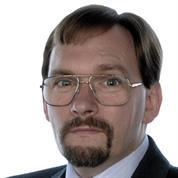Michael Barwise FRSA reflects on two recent articles in the RSA Journal.
I read with great interest in Issue 3 2019 of the RSA Journal Michael Bang Peterson’s “An age of chaos?” and Katharina Bauer’s “Keeping it real”. Although at first sight they seem to address very different matters (the first discusses an apparent rise in destructive nihilism and the second is concerned with exercising authenticity) I would like to make a connection between their two themes.
The self-referential and morality-free definition of authenticity presented by Professor Bauer is commonly accepted in a modern culture that puts self interest first; such self interest, if widely practiced, can itself lead to the chaos of “every man for himself”. However, the destructive nihilism that Peterson identifies leads to a very different kind of chaos that is not explained by that definition. Nor is that nihilism necessarily fully explained either by financial inequalities or by an absolute “clash between status aspirations and thwarted opportunities” as he suggests.
Maybe we should ask both whether our aspirations are always realistically achievable and whether they are actually our own. We might also consider the consequences of finding they are not, and how we could instead aspire to what is reliably both achievable and our own.
These are not entirely recent concerns. In his autobiography “Memory Hold-the-Door” (1940) John Buchan already foresaw “revolution, the most dangerous kind, a revolution of the middle classes” driven by a growing disparity not of wealth but between aspirations and opportunities. In “Escape from Freedom” a year later, Erich Fromm proposed that societal enforcement of conformity engenders feelings of isolation, powerlessness and anger if the demands of that conformity are external to or in conflict with an intrinsic human need for individual freedom of emotion and thought. However, he also rightly questioned the nature of those freedoms, pointing out that it is possible to embrace a personal “illusion of individuality” while conforming blindly to external control. We can be convinced that our thoughts, feelings and wishes originate freely from within, whereas in reality they may merely have been indoctrinated and may not even accord with our best interests.
This is a hugely important consideration at a time where both our desires and our access to information are increasingly manipulated by multiple powerful but faceless and inaccessible entities with agendas not of our choosing. Such manipulation ranges from ideologically driven social policy, the relentless pressure of advertising and the shallow transient celebrity awarded to social networking “influencers” right down to the selection of products on supermarket shelves that is limited to what sells in volume. In none of these cases are the best interests of the individual considered. As individuals we have negligible real choice, but by dint of repetition and elimination of alternatives we ultimately come to accept that what is thrust at us is what we always wanted.
While this illusion of personal choice persists, it may suffice to maintain stability. Nonetheless, if we catch on to the deception, the resulting emotional response can be overwhelming. There are few more effective triggers to anger than the realisation we’ve been fooled. This anger has no access to its legitimate target as the entities that misled us are by virtue of disparity of scale and power essentially inaccessible. The anger must nevertheless find an outlet and may be dissipated in aggression against whatever comes to hand.
Such acts of mistargeted aggression can readily escalate into chaos, but can the exercise of authenticity prevent them occurring? That entirely depends on what we mean by authenticity. Merely being “true to oneself” according to the currently prevalent paradigm is entirely subjective, and thus itself far from immune to indoctrination. It is also - by its explicit amorality - inimical to social harmony. Its epitome is Crowley’s “do what thou wilt shall be the whole of the Law”, which ultimately results in anarchy. The vague and rather patronising existentialism of Sartre is not much help either as it denies the validity of potentially inescapable external constraints.
Instead, we might undertake whatever we do (even if that is what everyone else is doing) for a clear, sufficient and justifiable reason that allows for the existence of real constraints rather than merely being an expression of unfettered impulse. The authenticity that might prevent chaos is in my view not of specific action or of specific motivation but of the process whereby that motivation is established. The clarity of thought and emotion we must bring to bear to understand and validate our true motivations is a powerful restraint on impulses towards chaos. By keeping us anchored in reality it helps us to avoid being fooled.
Michael is a risk expert and business consultant with a background in systems engineering and human communication. He also engages in technical and science education, having lectured in business and technologies to Masters level.
Related articles
-
What is the RSA?
Anton Howes
The RSA historian-in-residence on over 270 years of work to benefit the public as “the nation’s improvement agency.”
-
Values and Wellbeing
Charles Fowler FRSA
Ahead of World Values Day 2019, Charles Fowler FRSA outlines the importance that consideration of our values holds.
-
The Digital Flaneur
Ross Smith
Just what do 19th-century aristocrats and technologically adept, 21st-century citizens have in common?




Be the first to write a comment
Comments
Please login to post a comment or reply
Don't have an account? Click here to register.